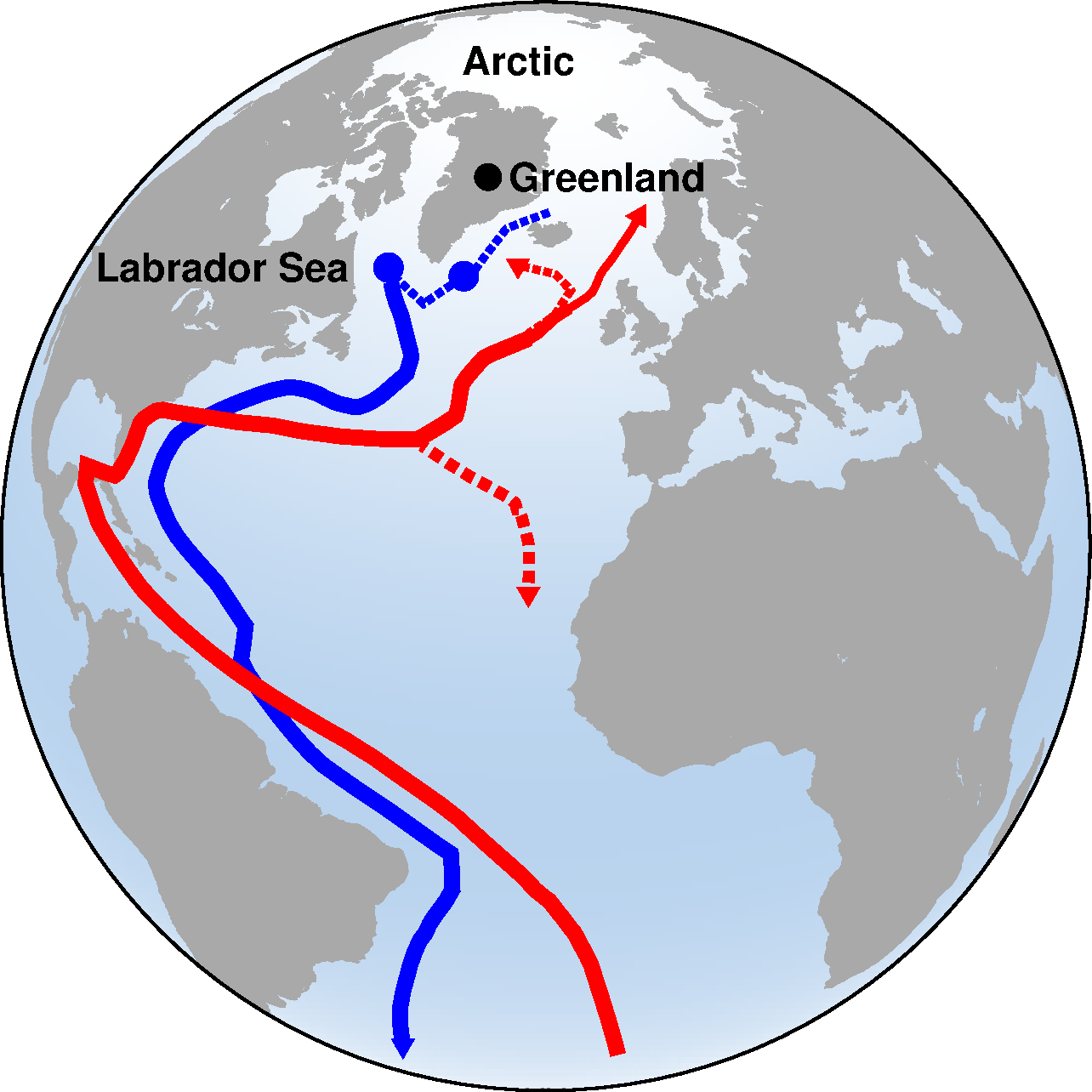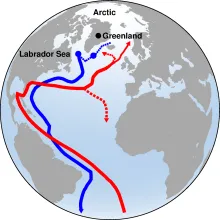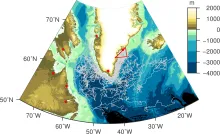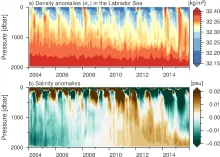TERIFIC aimed to identify processes and timescales by which freshwater from northern high latitudes can reach and influence deep convection. Direct, seasonally-resolving observations of convective processes under the influence of surface forcing will be used to test the relative importance of different processes at determining convective intensity, and will form a benchmark for numerical simulations.
TERIFIC is a high-risk experiment, with autonomous technologies deployed in a harsh environment, new drifter technology being deployed, and applying autonomous surface vehicle data to estimate surface fluxes. But the gains on offer are substantial. While these autonomous platforms are becoming more routine, the novelty in this experiment lies in their synergistic use to capture multiple parts of the same problem at high resolution over seasonally-resolving timescales:
- Large numbers of drifters used to capture a full annual cycle of pathways of surface water transport,
- Autonomous underwater vehicles deployed to resolve small vertical and horizontal scales of water properties, vertical velocities and turbulent dissipation during convection, the months leading up to it, and the continuous restratification processes, and
- Concurrent deployment of a surface vehicle to make direct measurements of near surface meteorological conditions, to improve estimates of the surface forces driving deep convection.
This remarkable dataset will be maximised by applying new insights and analysis techniques from field experiments around the world. These observations and their analysis will extend the state-of-the-art for autonomous, system-capturing ocean observations, and will deliver new insights into a key localised process of climate change. The results will serve as a benchmark for numerical models in simulating both cross-shelf exchange and convection.
Schulze Chretian, L.M., Frajka-Williams, E. (2018) Wind-driven transport of fresh shelf water into the Labrador Sea Basin, Ocean Sci., 14: 1247–1264. https://doi.org/10.5194/os-14-1247-2018
Frajka-Williams, E., Bamber, J., Våge, K. (2016) Greenland Melt and the Atlantic Meridional Overturning Circulation. Oceanography, 29(4): 22–33. https://doi.org/10.5670/oceanog.2016.96
Frajka-Williams, E., Rhines, P.B., Eriksen, C.C. (2014) Horizontal stratification during Deep Convection in the Labrador Sea. 44: 220–228. https://doi.org/10.1175/JPO-D-13-069.1
Frajka-Williams, E., Eriksen, C.C., Rhines, P.B., Harcourt, R.R. (2011) Determining Vertical Water Velocities from Seaglider. Journal of Atmospheric and Oceanic Technology, 28(12): 1641–1656. https://doi.org/10.1175/2011JTECHO830.1




